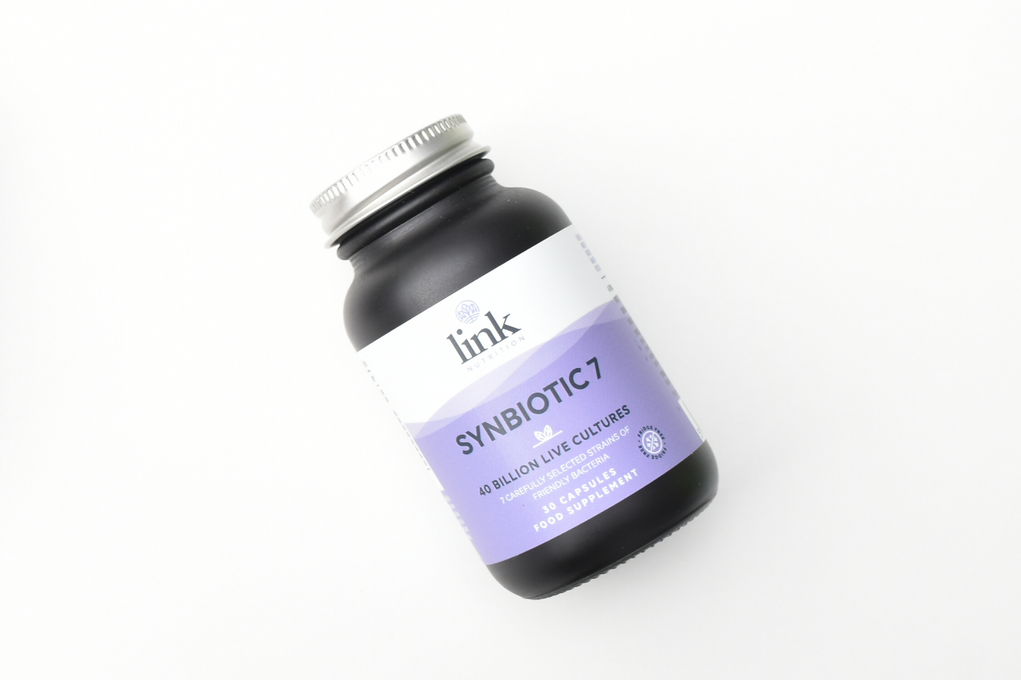Gut health hacks for immunity
5th December 2019 / Health
Gut health hacks for immunity
Emily Shannon

Can you believe it’s December? The year has gone by in a flash and suddenly we’re heading straight into the festive season. When this time of year comes around, the question everybody asks is ‘how do I keep up?”. Well supporting your gut is a great place to start!
The festivities may already be underway, and if they aren’t they certainly will be soon. Here at Link Nutrition, we believe that a busy lifestyle is compatible with health, and the Christmas period is no exception; after all, it does only happen once a year and the most important thing about the festivities is making sure that you enjoy them! So throughout December, we're going to ensure you’re equipped with everything that you need to enjoy the celebrations but also give you a little helping hand along the way!
Gut health and our immune system, what’s the link?
We’d thought we’d kick off with how our gut health can support immunity. Maintaining a balance of bacteria within our gut is essential not only for the digestion of the foods we eat but also for keeping our immune system in check. We know that a poor microbial community is linked to a compromised immune system. This disruption can wreak havoc with our bodies innate immunity, inhibiting its ability to fight off disease; which we certainly don’t need at this time of the year. One of the best ways to strengthen our immune system is to nurture the good guys that live within our gut.
Gut-associated lymphoid tissue (GALT) is a component of the mucosa-associated lymphoid tissue (MALT) which works in the immune system to protect the body from invasion in the gut by secreting lymphocytes which attack harmful invaders, helping to keep the harmful bugs at bay.
Did you know that 80% of your immune system is located in our gut? Our body relies on enzymes and microbes to kill pathogenic bacteria that enter the body. As a result, the body requires bacterial cultures to strengthen the intestinal walls, support our immune system. To avoid illness, our gut immune system needs to be thriving to ensure that we avoid illness.
Short Chain Fatty-Acids and Immunity
Have you ever heard of Short-Chain Fatty-Acids before? Let’s call them SCFAs for short. Well if you haven’t, we wanted to let you into a little immunity secret. SCFAs are produced by the friendly bacteria in our gut; they are the end products of bacterial fermentation. The friendly bacteria within our gut ferments prebiotics and dietary fibres, and the end product are SCFAs. They are crucial for all-round gastrointestinal health, but most importantly they play a key role in supporting our immune system.
Essentially SCFAs act as a ‘link’ between the gut microbiota and the immune system by influencing the development and activation of leukocytes, which are white blood cells integral within our immune defence. Without sufficient SCFAs, it becomes more difficult for our body to produce leukocytes, hence our immune system becomes compromised, pretty amazing really!
Nurturing our gut bacteria
One of the most fascinating things about our gut bacteria is that we can change them for the better. Yes, that’s right they aren’t set! Our daily habits, including our diet and how much we exercise can alter the friendly bacteria in our gut in our favour. So how do you change your bacteria? Well, it seems that gut health is everywhere at the moment, but we assure you that it is for good reason. Good health starts in the gut. There are a few things that are essential to allow your gut bacteria to flourish, which will help to boost immunity all-year-round.
Top ways to keep your gut health in check:
- Eat your veggies - diversity is key! Eating the rainbow will help your gut bacteria to thrive this winter and keep the bugs at bay. To maintain optimal diversity we should aim to be eating as many different plants as possible. Why not challenge yourself and see how great you feel?
- Make sure that you include plenty of fibre! As you’ll find out below, prebiotic fibre is essential for good gut health and is essential for the promotion of good digestion. Some of our favourite sources of prebiotic fibre include onions, leeks, asparagus and bananas!
- Know the difference between prebiotics and probiotics - these words get a lot of attention, but what’s all the hype and most importantly what’s the difference? Well, think of it this way, they are both really important for our gut health but prebiotics aren’t live bacteria, they are often food (usually dietary fibres) that feed the good bacteria living in the gut and encourage their growth. Probiotics, on the other hand, are live bacteria that have benefits to human health. They help to increase the good bacteria within our gut and promote a healthy balance within our gut flora. If you want to find out more you can read our Prebiotics and Probiotics Explained blog written by Registered Dietician Laura Tilt.
- Alongside a varied diet packed with plants and plenty of exercise, getting a daily dose of good bacteria can further support gut health and therefore immunity. Our Synbiotic 7 contains a unique blend of prebiotics and 7 of the most recognised friendly bacterial strains to colonise your gut microbiome, you can find out more here.
From The Blog
-

25th February 2025 / Health
Empowering Women’s Health: Key Supplements for Well-being
Women’s health is a lifelong journey, with each stage presenting unique nutritional and wellness needs. From maintaining energy levels to supporting hormonal balance and bone health, the right comb...
Read article -

17th February 2025 / Health
Empowering Women’s Health: Lifestyle Tips and a Key Supplement for Perimenopause and Menopause
NaomiWomen’s health evolves through various life stages, and the transition into perimenopause and menopause brings unique challenges. During these phases, hormonal fluctuations can lead to symptom...
Read article -

10th February 2025 / Health / Products
The Best Foods and Drinks to Help Your Body Recover from Burnout
Burnout is a growing issue in today’s fast-paced work culture, leaving many people feeling exhausted, overwhelmed, and depleted. While rest and self-care are essential, nutrition plays a crucial ro...
Read article



